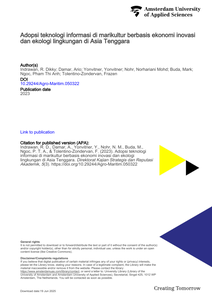That coral reefs are in decline worldwide, particularly in the Caribbean, will come as no surprise. This decades-long decline has reached a potential tipping point as the weight of the effects of climate change have come decidedly to bear on the planet’s most diverse marine ecosystem. Whether coral reefs can persist without restorative intervention is debatable, which has prompted a surge in coral reef restoration projects focusing primarily on the cultivation and transplantation of coral fragments onto degraded reefs. But that widespread approach does little to address the underlying causes of coral loss, one of which is the proliferation of macroalgae that are deleterious to corals. An emerging solution to this problem is the enhancement of herbivory on coral reefs through improved management of herbivores, artificial enhancement of herbivore settlement, or their mariculture and subsequent stocking. This review explores the nuances of the biology of well-studied Caribbean coral reef herbivores (fishes, sea urchins, and crabs) as it relates to their mariculture and investigates the promise of herbivore stocking onto coral reefs as a restoration strategy.
LINK
Isu KunciPolicy Brief ini memuat poin-poin penting sebagai berikut :1) Adopsi teknologi informasi untuk industri perikanan.2) Pentingnya ekonomi inovasi pada rantai nilai budidaya perikanan laut dan darat.3) Evaluasi teknik budidaya dan ekologi lingkungan dalam memilih teknologi informasi.RekomendasiPenerapan teknologi informasi pada di Marineculture di Asia Tenggara, yang berfokus pada inovasi ekonomi dan ekologi lingkungan, sangat penting bagi pembangunan berkelanjutan. Rekomendasi yang diberikan adalah melalui pendekatan dan aplikasi: (1) Transformasi Digital. Hal ini mencakup peningkatan infrastruktur, promosi e-commerce, dan pengembangan kewirausahaan digital. (2) Pengembangan Sains, Teknologi & Inovasi: harus dipandang sebagai investasi untuk mendorong pertumbuhan ekonomi dan kemajuan teknologi berbasis Ekonomi Digital. (3) Adopsi dilakukan dengan Transisi Ramah Lingkungan agar pengembangan teknologi berkontribusi terhadap ekologi lingkungan. (4) Dukungan penuh dari pemerintah melalui kebijakan pemberian kredit finansial dan penyuluhan tentang aplikasi teknologi berbasi IoT kepada pembudidaya ikan kecil. Oleh karena itu, negara-negara Asia Tenggara harus memanfaatkan teknologi untuk inovasi ekonomi sambil memastikan kelestarian lingkungan melalui penerapan praktik dan kebijakan ramah lingkungan.
DOCUMENT

With coral reefs in global decline and further threatened by growing anthropogenic impacts, effective strategies for restoring these critical ecosystems are increasingly sought after. In Caribbean reefs, where disease outbreaks and fishing pressure have reduced herbivore abundances and facilitated widespread phase shifts from coral to algal dominance, herbivorous invertebrates have gained recent attention as a promising restoration tool. However, many restoration practitioners face challenges in evaluating the feasibility and anticipated outcomes of integrating invertebrate herbivores into their programs. Here we review recent developments regarding species and techniques and identify remaining barriers that require further research attention before invertebrate enhancement can be considered a scalable strategy for restoring Caribbean reefs. Bottlenecks in mariculture processes remain in the larval and juvenile rearing stages for many species that impede the scalability of invertebrate production, with significant outstanding challenges across all species in terms of stocking effectiveness and monitoring feasibility. Integrating alternative herbivorous invertebrate species can ameliorate some of these bottlenecks, and investigating the culture feasibility and grazing effectiveness of additional species holds notable research opportunities. Across research and restoration initiatives, ecological objectives and viable techniques for measuring outcomes against these objectives are needed. These findings establish research priorities for restoration and invertebrate husbandry communities alike and provide guidance for practitioners in the critical and rapidly evolving field of coral restoration.
LINK